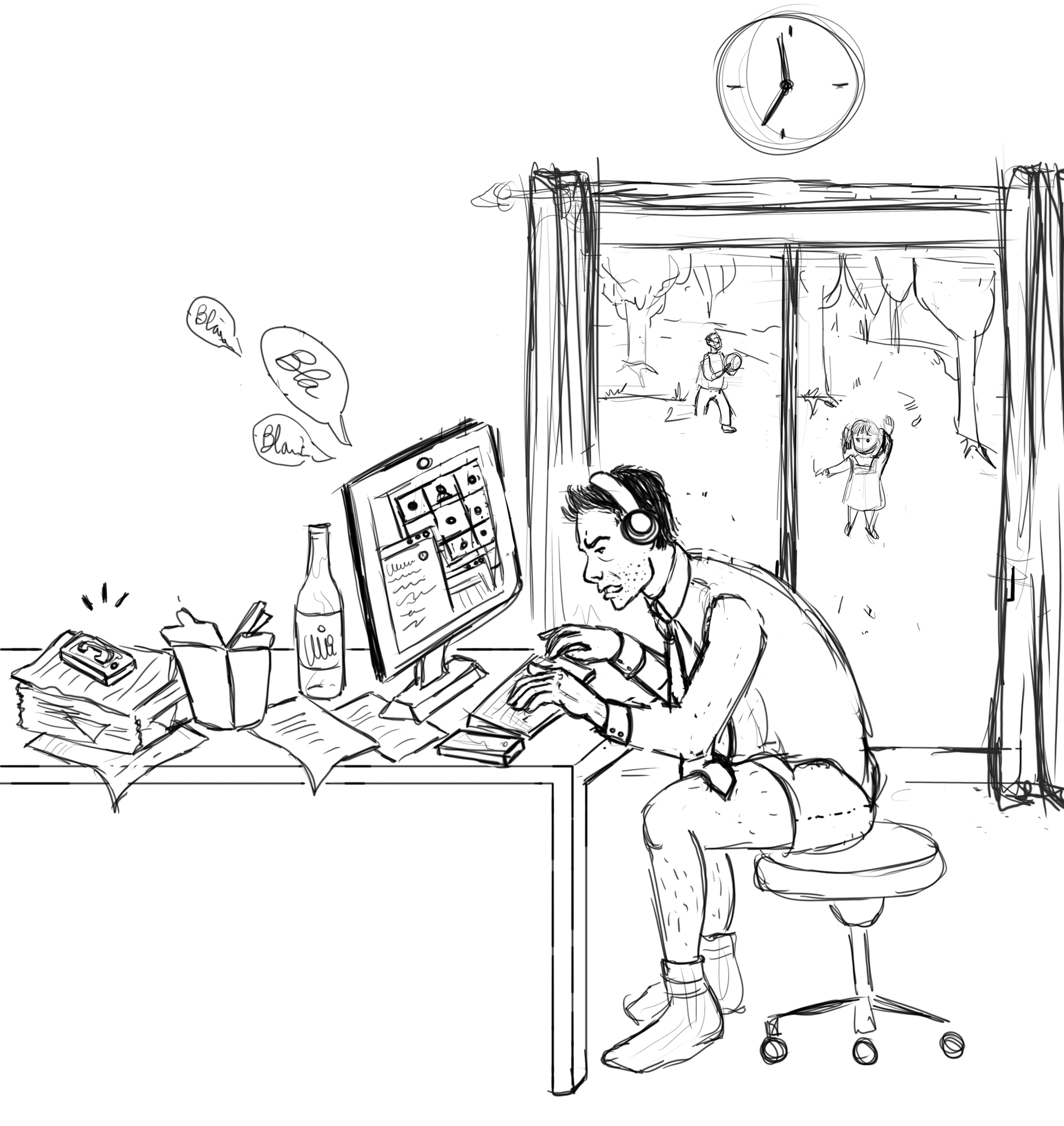Are you doing a post-pandemic pointless job (aka ‘allo blah blah’ job) ?
What is happening now ?
Nowadays, remote working has become the norm. It has given us more flexibility but has also exacerbated the belief in today's work culture that you need to work longer hours in order to get more done and succeed. Hyperconnectivity is allowing employees to put in more - often unproductive - hours because of their inability to switch-off.
In fact, if you are working on multiple projects, it is quite common that you start the day with a project daily meeting (“what am I going to do today”), have many other calls and workshops in between, a lot of things to work on and a last call at the end of the day (“what have I accomplished today and what am I - or my team - going to do tomorrow”). And usually this last call gets extended and often ends with additional tasks preventing you from logging off at a reasonable hour.
Well, if you are really passionate about your job, you might accept the sacrifice for a while. However, if you know deep inside that your job is pointless (or becoming increasingly pointless), this could lead to the so-called ‘Zoom fatigue’ and can have a direct impact on your health and wellbeing. Let’s face it, the human body is not a robot. It's not possible to have back-to-back virtual meetings and claim to be productive for 8+ hours in this setup. And if you have family and kids to take care of or simply you want to maintain your hobbies, sport activities etc.., then you may struggle to find the necessary energy to invest in these important aspects of your life. You can also get affected mentally if you live with a dissonance between the energy you are spending on your job and the pointlessness you see in it. (read 'How to remain sane and healthy while doing an “allo blah blah job”?')

'Allo Blah Blah' Jobs
Beyond the question of remote working and productivity metrics, more fundamental flaws already existed before the pandemic. In his famous book, David Graeber brilliantly described the phenomenon of “bullshit jobs”. The Covid-19 crisis and widespread remote working have further revealed and amplified this phenomenon by removing the office rituals from our daily routine. The work today is mainly done via conference calls, thus creating what our kids first described as “allo blah blah” jobs (more about this story in our book ). This combination of bullshit jobs and absence of social bonds have an obvious impact on the physical and mental health of employees. More than ever, employees feel the urge to break this pattern and find true meaning in their work.
In fact, this situation has pushed armies of talents to reassess their life priorities and seek a better work life balance. Indeed, millions have either already quit their jobs (aka the great resignation) or decided to stay but have already mentally quit their jobs (so-called the quiet quit).
If you are experiencing these patterns and struggling with your day-to-day job, spend some time asking yourself the questions below (see check-list in the box below) to assess the degree to which you have an ‘allo blah blah’ job. If you want to know more about our personal stories and how we broke free from it, you can find out more in our recently published book.
By Hadi and Nabil.
Purpose
- Do you feel a deep sense of purpose in what you do?
- Is your purpose aligned with that of your company, if it even has one?
People: Boss, teams and clients
- Do you trust that your boss has your best interests in mind and that he/she is at least trying to meet them?
- Do you trust or enjoy being around any of your colleagues?
- If there is a conflict with a client, do you get support from your boss/colleagues?
Workplace and social interactions
- Is your workspace appropriate for the job you are asked to do?
- Do you regularly not see at least one human being for work-related matters?
- Do you spend most of your time on Zoom/Microsoft Teams/Slack etc.?
- Is your time generally spent mostly in meetings (either Zoom or face to face)?
Job outcome / added value
- Do you produce/support people who produce an output that is of value to anyone?
- Is your output/product actually used by anyone either in your company or in wider society?
- Is your time spent mostly on Excel/PowerPoint/any other Microsoft Office tool?
General considerations
- Is your job title self-explanatory?
- Do you need more than one minute to explain your job?
- Are you proud of what you do for a living?